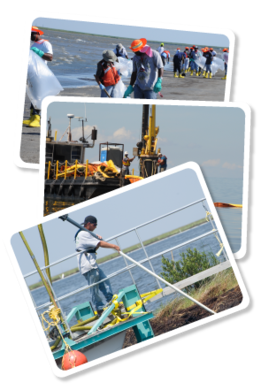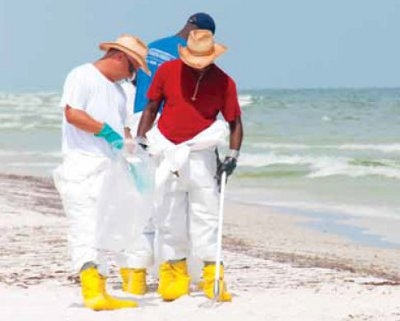Gulf Long-term Follow-up Study (GuLF STUDY)
Contents
What is the GuLF STUDY?
 Source: NIEHS. The Gulf Long-term Follow-up Study (GuLF STUDY) will learn about potential health effects from the 2010 oil spill (Deepwater Horizon oil spill ) in the Gulf of Mexico. The National Institute of Environmental Health Sciences (NIEHS) is leading this research. The NIEHS is one of the National Institutes of Health (NIH) and part of the U.S. Government.
Source: NIEHS. The Gulf Long-term Follow-up Study (GuLF STUDY) will learn about potential health effects from the 2010 oil spill (Deepwater Horizon oil spill ) in the Gulf of Mexico. The National Institute of Environmental Health Sciences (NIEHS) is leading this research. The NIEHS is one of the National Institutes of Health (NIH) and part of the U.S. Government.
We will study workers who did different types of oil-spill clean up work and others who were not directly involved in clean-up. In all, about 55,000 people will be included in the GuLF STUDY.
The study will compare the health of clean up workers and others who did not do clean-up to learn if health problems are more common in workers. We will study other factors that may explain why some people are more likely than others to get sick. We will also learn how stress and job loss from the oil spill affects health, including mental health.
Who is eligible?
• You are eligible if you are at least 21 years old;
• You did oil spill clean up work for at least 1 day; or
• You were not directly involved in oil spill clean-up
but you worked near the oil spill or completed
some oil spill worker training.
What will I be asked to do?
You will be asked to complete a 30 minute telephone interview about your oil spill clean-up activities, health, and lifestyle. We will follow your health over time.
About half of the people in the GuLF STUDY will be invited to have a clinical home visit. The visit will include a second health interview; collection of blood, urine, and house dust; and some clinical measurements like height and weight, blood pressure, glucose (sugar in urine), and lung function. We will give people in the study the results of these screening tests and help them find a doctor or clinic if they don’t have one.
People who have the home visit will also be asked to complete short questionnaires every 2 years. The questionnaires will ask about changes in health over time.
Some people in the GuLF STUDY will be invited to be in a part of the study that includes additional medical tests.
If at any time in the course of the study, the need for mental or medical health care is evident, participants will be given information on available healthcare providers or referred for care. The study leaders have up-to-date information on healthcare providers and a medical referral process in place as part of the study. Materials will be available in English, Spanish, and Vietnamese.
Why should I participate?
This will be the largest study ever about the health effects of an oil spill. By being part of this study, you will be helping your community and others by helping researchers understand any health effects related to an oil spill. Results from the study may help officials plan how to respond if there is another oil spill in the future.
Will my privacy be protected?
We will do everything we are legally able to do to protect your privacy and keep your information confidential. The Federal Privacy Act helps us keep your information safe. The study has been given a Certificate of Confidentiality. This will also help us keep your information private.
How can I find out more?
To find out more information about the GuLF STUDY, call toll free 1-855-NIH-GULF (1-855-644-4853) between 9 AM and 9 PM (Eastern) Monday through Saturday and 12 PM to 6 PM on Sunday. You may also visit www.nihgulfstudy.org.
We hope you will become part of the GuLF STUDY!
